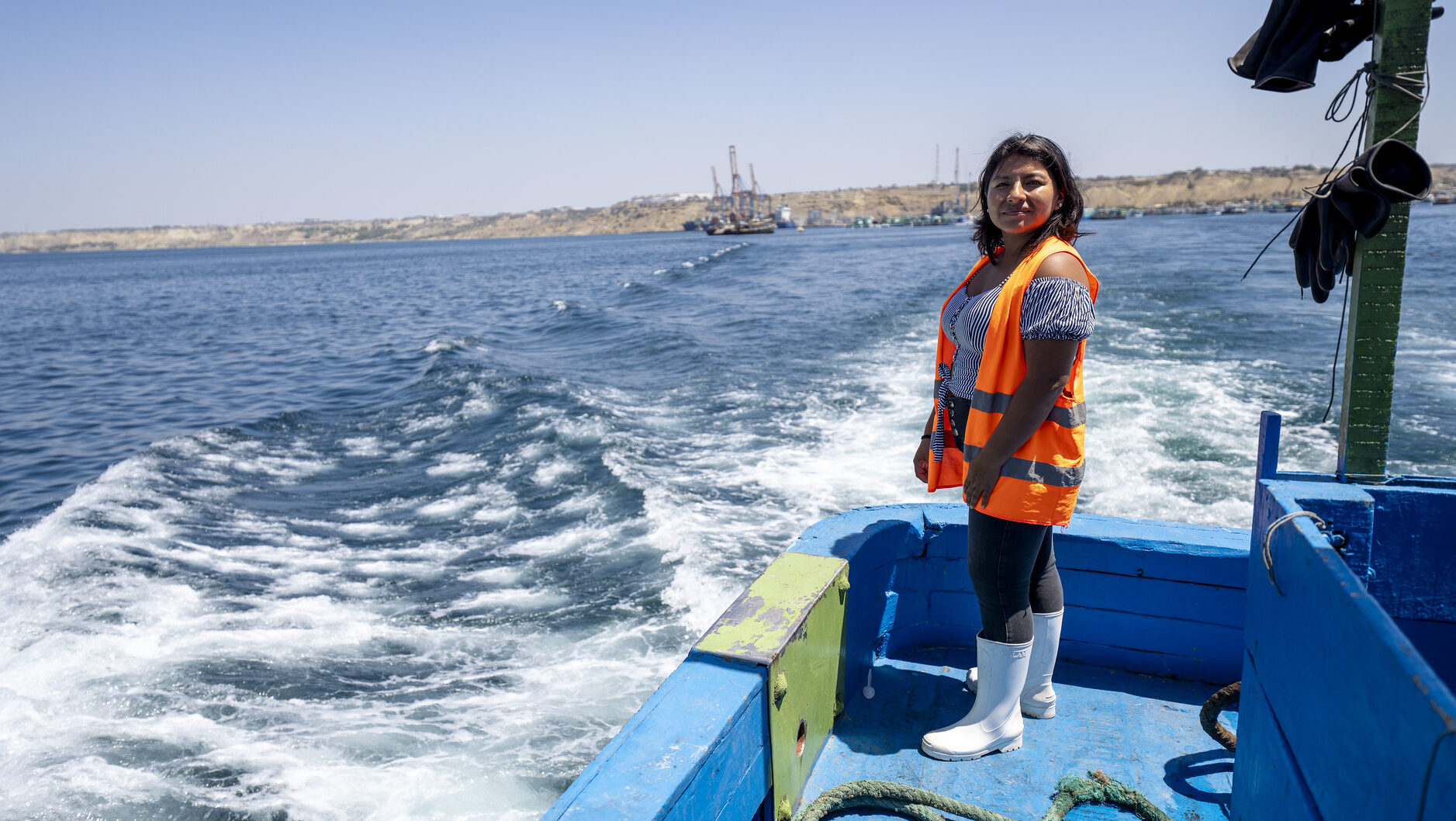Susy Querevalú, the woman who made history in the Peruvian sea

She started fishing, inspired by her father. Susy Querevalú was 26 years old and already a mother of two children when she decided to buy a boat. The impact of a whale damaged her boat, but with a lot of effort she managed to return to the sea and make history: she became the first woman to obtain a health permit in Piura through “Por la Pesca”, a project focused on reducing illegal, unreported and unregulated (IUU) fishing, the result of an alliance between USAID, the Peruvian Society for Environmental Law (SPDA) and the Walton Family Foundation.
Prior to formalization, Susy faced many complications with documentation, had less income, and dealing with corruption was a constant problem. Being a woman in the artisanal fishing sector has also been challenging, especially because of her role as an “armadora” (boat owner), but this has not stopped her and has made her a leader in the area of La Tortuga Bay in Paita. Times have improved: she sells directly to the factories, so her profits have increased by 20 percent.
Participating in the “Por la Pesca” project was undoubtedly a great help. Thanks to the support of SPDA specialists, she was trained to keep her boat in better condition, as well as in sanitary issues for handling hydrobiological products, and finally to obtain the authorization. With this document, Susy certifies that the product she offers is of high quality and that her work does not threaten the sustainability of artisanal fishing or the biodiversity and livelihoods of coastal communities.

Today, she manages her business, helps her father and others in the sector, and despite the days of scarcity, never stops thanking the sea for all it has given her. Susy’s case is a success story and an inspiration for Peruvian women and citizens who live from fishing, and a reference that demonstrates the value of formalization in the lives of marine workers.
It is worth noting that the “Por la Pesca” project, implemented by SPDA, USAID and the Walton Family Foundation, has helped formalize more than 20 percent of the artisanal pota and perico fishing fleet, representing more than 450 vessels. It is likely that this is just the beginning and the road is long and complicated, but stories like Susy’s are the greatest motivation to continue and dream of more women working sustainably in the Peruvian sea.
Photos: USAID Peru.